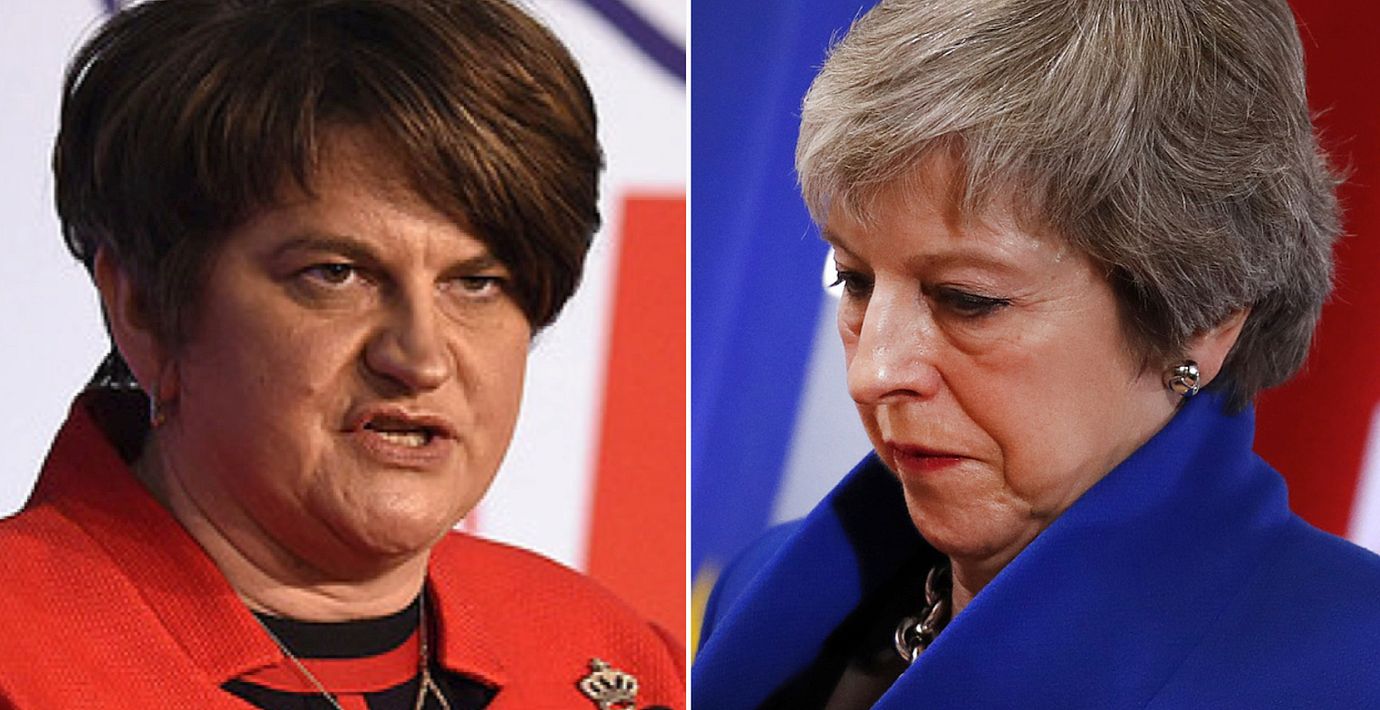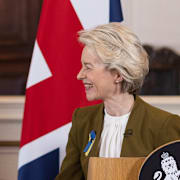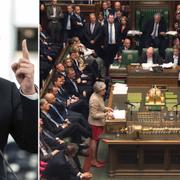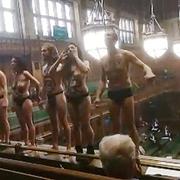
DUP säger nej till avtalet – May saknar sju röster
Theresa Mays nordirländska stödparti DUP kommer att rösta nej till premiärministerns förslag till brexitavtal. Partiledaren Arlene Foster kallade på söndagen förslaget för ett hot mot Storbritannien, skriver Financial Times.
Därmed saknas det sju röster för att få igenom förslaget i det brittiska underhuset, konstaterar Reuters.
Mays Toryparti har enligt nyhetsbyrån 316 aktiva lagstiftare mot den totala oppositionens 313. Dessutom sitter DUP på tio röster i underhuset.
Theresa May hoppas dock kunna locka över några röster från Labourpolitiker som är positiva till brexit eller kommer från valkretsar som röstade för att lämna EU.
Live
Läs även
bakgrund
Democratic Unionist Party (DUP)
Wikipedia (en)
The Democratic Unionist Party (DUP) is a unionist political party in Northern Ireland. Ian Paisley founded the DUP in 1971, during the Troubles, and led the party for the next 37 years. Now led by Arlene Foster, it is the party with the most seats in the Northern Ireland Assembly and the fifth-largest party in the House of Commons. Following the 2017 general election, the party has agreed to support a Conservative minority government on a case-by-case basis on matters of mutual concern.The DUP evolved from the Protestant Unionist Party and has historically strong links to the Free Presbyterian Church of Ulster, the church Paisley founded. During the Troubles, the DUP opposed attempts to resolve the conflict that would involve sharing power with Irish nationalists or republicans, and rejected attempts to involve the Republic of Ireland in Northern Irish affairs. It campaigned against the Sunningdale Agreement of 1973, the Anglo-Irish Agreement of 1985, and the Good Friday Agreement of 1998. In the 1980s, the party was involved in setting up the paramilitary movements Third Force and Ulster Resistance.
It is right-wing and socially conservative, being anti-abortion and opposing same-sex marriage. The DUP sees itself as defending Britishness and Ulster Protestant culture against Irish nationalism. The party is Eurosceptic and during the UK European Union (EU) referendum it supported the UK's withdrawal from the EU.For most of the DUP's history, the Ulster Unionist Party was the largest unionist party in Northern Ireland, but by 2004 the DUP had overtaken the UUP in terms of seats in the Northern Ireland Assembly and Parliament. Following the St Andrews Agreement in 2006, the DUP agreed to enter into power-sharing devolved government in Northern Ireland with Sinn Féin. Despite reports of divisions within the party, a majority of the party executive voted in favour of power-sharing in 2007. However, the DUP's sole Member of the European Parliament (MEP), Jim Allister, and seven DUP councillors left the party in opposition to its plans to share power with Sinn Féin, founding the Traditional Unionist Voice. Peter Robinson became DUP leader in 2008.
Omni är politiskt obundna och oberoende. Vi strävar efter att ge fler perspektiv på nyheterna. Har du frågor eller synpunkter kring vår rapportering? Kontakta redaktionen



